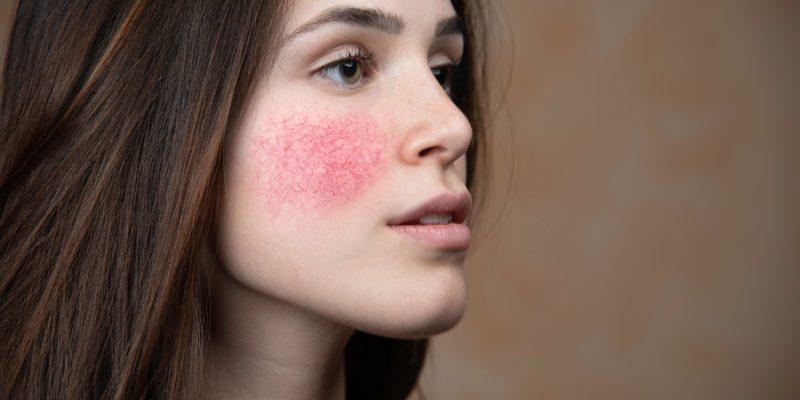Rosacea
Rosacea, pronounced ``roe-ZAY-she-uh,`` is a common skin disorder that makes your face appear flushed and has visible blood vessels. Additionally, it may result in tiny, pus-filled pimples. These symptoms and indications may fluctuate for weeks or months before subsiding temporarily. Rosacea can be confused with acne, other skin conditions, or ruddiness that occurs naturally.
Anyone can develop rosacea. But white women in their middle age are the ones that have it the most frequently. Rosacea cannot be cured, but therapy can manage and lessen the symptoms and signs.
CAUSES:
Although the exact cause of rosacea is unclear, it may be brought on by a hyperactive immune system, genetics, the environment, or a combination of these. Rosacea is not communicable and is not brought on by bad hygiene.

Things that set it off:
Hot beverages and hot food
Various alcoholic beverages including red wine
Extremes of temperature
Wind or sun
Emotions
Exercise
Blood vessel-dilating drugs such as certain blood pressure medicines
Several cosmetic skin care and hair care items
SIGNS & SYMPTOMS:
Vitiligo symptoms and signs include:
Flushing or blushing:
A persistent flushing or blushing in the middle of your face might be brought on by rosacea. On dark and black skin, it could be difficult to discern this conditional symptom.
Observable veins:
Your nose and cheeks' tiny blood vessels rupture and become apparent (spider veins).
Bloated bumps:
Acne-like blemishes frequently appear on the faces of rosacea sufferers. Sometimes pus is present in these pimples.
Burning feeling:
The afflicted area's skin may feel warm and painful.
Eye issues:
Many rosacea sufferers also have dry, itchy, and puffy eyes and eyelids. It is referred to as ``ocular rosacea.`` Some patients experience skin symptoms before experiencing eye problems.
Expanded nose:
Rosacea can cause the skin of the nose to thicken over time, giving the nose a bulbous appearance (rhinophyma). Men experience this more frequently than women do.
Avoid any unwelcoming circumstances and consult a skin specialist if you have these symptoms.

